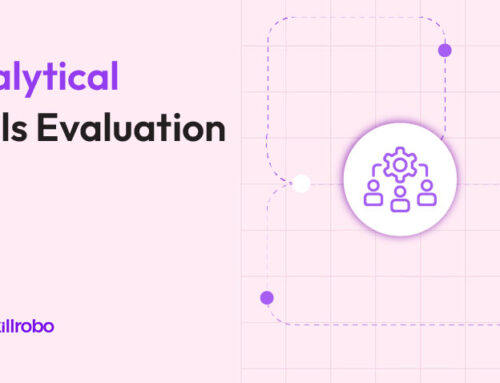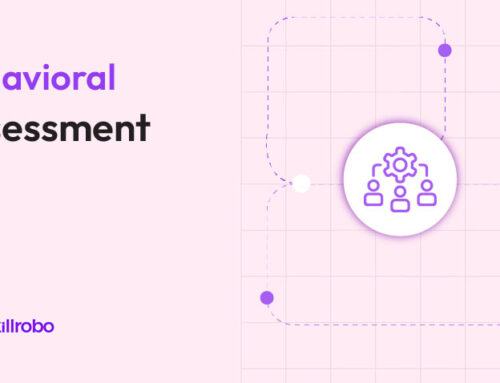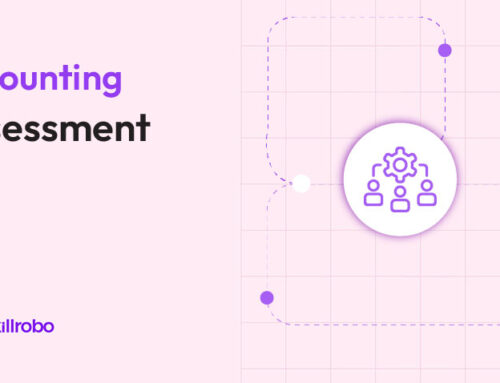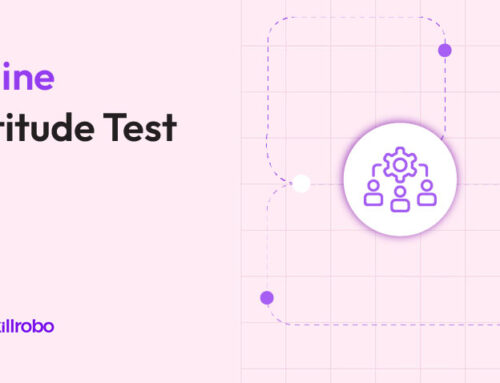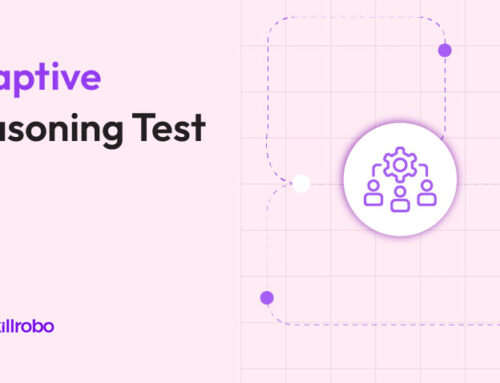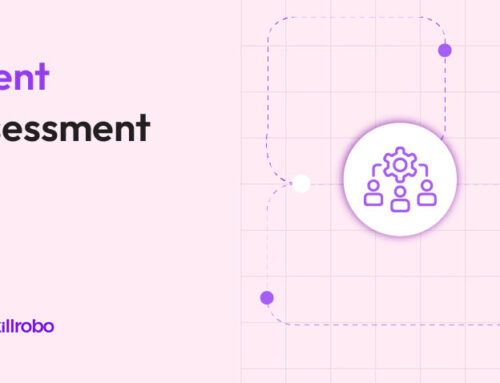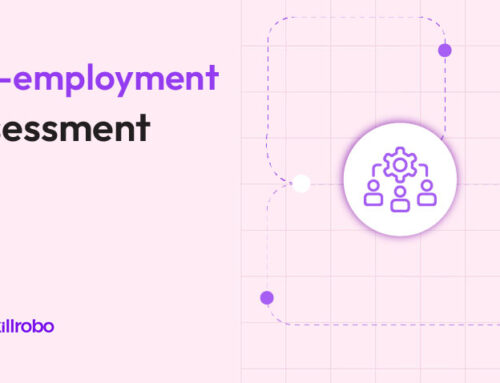Table of Contents
Related articles

Thanks to the Covid pandemic, online has become is business as usual for most organizations. From the education sector to the employment sector to the corporate sector, online is the way forward. How safe and effective is it to carry out the entire business online? As per a survey by EducationWorld, a whopping 73% of the students were found to cheat during online exams. In the words of Manish Mohta, MD of Learning Spiral, online cheating could be minimized significantly by adopting advanced fraud and cheating prevention technologies. Understanding and identifying different ways to cheat on proctored exams helps upgrade and improve fraud and cheating prevention checks in online exam software.
Pros and Cons of Online Proctored Exams
As the name suggests, online exams are those that are conducted via an online system. The exams are conducted and evaluated through an online system. Online proctored exams are no doubt the most convenient option for educators and employers to assess the knowledge, skills, and competencies of students or potential hires. Also, know about the Pros and cons of Online assessment tests
Pros of Online Proctored Exams
1. Environmentally Friendly:
The impact that conventional examination methods have on the environment is well known. The paperwork and the infrastructure that offline exams involve leave a strong carbon footprint. Online exams do away with the paperwork and infrastructure requirements.
2. Time and cost saving:
There are several ways in which online exams save money. Printing costs, logistics, and transport costs, invigilation costs, and administrative costs can be avoided via online exams. With advanced proctoring technology, the invigilation time is also eliminated. The online assessment creator also provides reports and analytics on performance, which eliminates the time for paper evaluation.
3. Improves candidate experience:
Online assessments are powered by technology, which enables a superior user experience. Tech-centric online exams are super easy to scale, easy to set up, and convenient for candidates to appear for the exam. Online exam platforms use advanced technology to create a secure browser environment that prevents fraud and cheating.
4. Convenient:
Conducting online exams is convenient for the employer or the educational institute. They simply have to share the exam link via email with the candidates. The students or candidates can appear for the test from any convenient place, at a time convenient to them.
Cons of Online Proctored Exams
1. Technological challenges:
Although technology enables convenient and efficient remote assessment, it also poses certain challenges. The transition from paper-based exams to online mode might be challenging for students and educators. Examiners might require training to get used to the system. Failure of the Internet, when the test is ongoing, disrupts the flow of the exam and sometimes resets the entire exam for the student.
2. Infrastructural impediments:
One of the main challenges of online proctoring exams is that in some remote locations, access to a stable internet connection, electricity, and other basic system requirements is difficult to provide. Such infrastructure barriers affect the candidate’s experience while taking the exam. Institutes must consider such infrastructure challenges while deciding to shift to online assessments.
3. Grading challenges:
Grading in assessments that require long-answer questions is a challenge in online exams. Evaluating objective types of questions is relatively easy in the online format, but grading long-answer types requires manual grading.
4. Susceptible to cheating and fraud:
The scope for cheating and fraud is greater in online exams. Especially in high-stakes examinations, students resort to fraudulent practices like impersonation, referring to answers online, using external storage devices containing solutions, and other means. Online proctored exams need to have foolproof fraud prevention measures in place to ensure that students take the test in a fair manner.
10 Ways Candidates Can Cheat on Proctored Exams
As online evaluation options become more prevalent among employers and educators, students start exploring ways to leverage the loopholes in remotely proctored evaluations. What can be termed cheating during online exams? Any form of intentional or unintentional form of academic misconduct that gives exam takers an unfair edge over others may be termed as cheating. Cheating or fraud is a serious violation of disciplinary rules that leads to severe consequences for students and institutions conducting the exam.
Popular Google search questions around online proctored exams include:
- Can you cheat on a Zoom exam?
- How to cheat on an online exam?
- How to cheat on an online proctored exam?
- How to cheat on webcam tests?
- How to cheat on a computerized test?
- How to cheat in an online exam when the camera is on?
- How to cheat on a proctored online exam?
- How to cheat on online tests with a webcam?
- How to cheat on a proctored exam?
- How to cheat on a proctored exam at home?
- How to cheat on a video-recorded test?
- How to cheat on a programming test?
Not having in-person supervision during online exams paves the way for cheating and fraudulent practices. Companies that build online skill assessment software should be aware of various cheating methods that candidates resort to while taking online exams so that they can incorporate stringent checks in the software.
Let us explore how students cheat on online proctored exams.
1. Sharing the Reflection of the Screen:
While taking online exams, students may use multiple monitors. On one monitor, they may be attempting the test questions and simultaneously approach a friend for help with answers by sharing the reflection of the screen or sharing the screen with friends.
2. Impersonation:
Impersonation is one of the most common forms of malpractice during exams. In this method, a student has someone else take the test in their place. Impersonation may happen before the exam or during the online exam. Students try to bypass the authentication process by sharing login details with the impersonator before taking the test.
The impersonator can be easily legitimized through skillful alteration of identity proofs and admit cards. Another interesting impersonification technique is switching during the exam. When the exam begins, the actual test taker might sit for authentication. Once authentication is complete, the impersonator may switch places during the exam.
3. Using high-end Equipment:
It has been observed that in high-stakes exams like CAT, MAT, etc. students are using minute, undetectable Bluetooth devices for cheating. The use of high-tech calculators that can store formulas is another way of using technology to cheat in online exams. Cheating using hand-written notes is a traditional way of cheating in exams.
4. Mobile Phones:
Cheating and fraud using mobile phones are on the rise. Connected devices like mobile phones help fellow takers find answers from external sources or each other.
5. Navigation Offers:
Easy and unmonitored access to the internet and social media is a popular means of cheating in online exams. The candidates may log in to unauthorized websites or paste questions into the URL to find solutions.
6. Auto Coding Software:
Auto coding software is used by students to clear school/university exams or recruitment tests. Candidates need not write any code during the exam when they use this software.
7. External Devices:
Students use external devices like hard drives, microSDs, hard drives, and other external devices that are hard to detect and easy to hide. Taking a step further, students insert these devices to make a copy of the online exam to share with other students.
8. Help from Friends or Family:
Friends or family present in the room help students while taking online tests. These people are present in the room but cannot be detected by the webcam. They provide answers to the candidate by whispering or showing them in written format.
9. Keyboard Shortcuts:
Copy-pasting the answers by using various keyboard shortcuts is another popular way of cheating in online exams. Candidates copy-paste answers to frequently asked questions or popular questions on a clipboard to use during the exam.
10. Sabotaging and Exiting from the Test:
Students deliberately exit from the exam by giving excuses like poor internet connection or other technical issues to shut down the camera. While the camera is not switched on candidates can conveniently cheat in the exam. Sometimes, they exit from the test in order to gain time to find answers. For example, in a Zoom proctored exam cheating is done by sabotaging the webcam.
Students and job aspirants come up with many innovative ways to cheat in online exams by using technology. Students can figure out ways to cheat in ATI proctored exams or integrity proctored exams by smart usage of technology.
Fraud Prevention Techniques in Online Exams
Companies designing online proctoring software must be one step ahead of students/candidates so that they can include effective anti-cheating and anti-fraud checks. Understanding various ways that candidates adopt to cheat in online proctored exams helps design fraud-proof and cheating-proof software. Ways to cheat using technology external resources or other means must be explored and included in the design of online proctored software.
Using pre-employment skill assessment software like Skillrobo ensures that anti-cheating, anti-prevention checks are in place. Using this software ensures that the test is conducted in a secured browser environment so that no cheating is done. The candidate’s online activity is monitored throughout the exam/test.
Here are some of the effective measures that online proctoring tests must follow to prevent cheating:
- Preventing Impersonation: A dynamic authentication process is an effective way to prevent impersonation. Other identification techniques are 3-point authentication, random identity authentication, and AI-enabled facial recognition. Advanced impersonation checks like these can prevent impersonation during online exams.
- Preventing External Help: Proctoring techniques based on AI are highly effective in identifying any suspicious behavior through voice images or video. High-quality audio proctoring software scans the physical environment for additional noises, whispers, or mumbling during the test. The exam taker may be asked to take a 360-degree view of the venue where the test is being taken at periodic intervals to rule out any external help.
- Prevention of External Resource Use: Proctoring in a secure browser environment is one of the best ways to check the use of external resources during the exam. A secure exam browser is a web-based lockdown browser that converts any system into a safe workstation. In such an environment, the test takers cannot venture outside the test environment. Skillrobo enables a secure browser environment for all its tests. Other fraud prevention techniques include high-quality audio proctoring software, advanced video proctoring access, and live proctoring and auto proctoring features.
- Prevention of On-Screen Cheating: A secure browser environment is an effective way to prevent on-screen cheating. This environment locks the examination into a kiosk mode that whitelists only websites specific to the exam.
- Curbing Intentional Sabotage: Dealing with intentional sabotage of the test is a tricky situation. One way to deal with such situations is to provide a fresh set of questions once a test is interrupted. When candidates repeatedly report sabotage, the institute can take stringent action.
End of The Note
Knowing various ways that students follow to cheat online helps design fool-proof online proctoring software. Several educational institutions and hiring teams rely on online examinations or skill assessments to evaluate students and candidates.
The absence of personal invigilation in online exams results in a rise in fraud and cheating practices during the exam. Students come up with innovative ways to cheat on proctored online exams. How to cheat on an online proctored exam without being caught? How to cheat with the webcam? These are some of the avenues that candidates explore to cheat during online exams.
Skillrobo is an online pre-employment assessment software that is trusted by recruitment teams across the globe for hiring the perfect fit for open positions in their organizations. The secure browser environment provided by Skillrobo is effective in preventing all types of fraud and cheating during the exam. Hiring teams can depend on Skillrobo for conducting skill assessments without any malpractices by exam takers.
To explore anti-fraud and anti-cheating features of Skillrobo, Sign Up for the free trial.

Thanks to the Covid pandemic, online has become is business as usual for most organizations. From the education sector to the employment sector to the corporate sector, online is the way forward. How safe and effective is it to carry out the entire business online? As per a survey by EducationWorld, a whopping 73% of the students were found to cheat during online exams. In the words of Manish Mohta, MD of Learning Spiral, online cheating could be minimized significantly by adopting advanced fraud and cheating prevention technologies. Understanding and identifying different ways to cheat on proctored exams helps upgrade and improve fraud and cheating prevention checks in online exam software.
Pros and Cons of Online Proctored Exams
As the name suggests, online exams are those that are conducted via an online system. The exams are conducted and evaluated through an online system. Online proctored exams are no doubt the most convenient option for educators and employers to assess the knowledge, skills, and competencies of students or potential hires. Also, know about the Pros and cons of Online assessment tests
Pros of Online Proctored Exams
1. Environmentally Friendly:
The impact that conventional examination methods have on the environment is well known. The paperwork and the infrastructure that offline exams involve leave a strong carbon footprint. Online exams do away with the paperwork and infrastructure requirements.
2. Time and cost saving:
There are several ways in which online exams save money. Printing costs, logistics, and transport costs, invigilation costs, and administrative costs can be avoided via online exams. With advanced proctoring technology, the invigilation time is also eliminated. The online assessment creator also provides reports and analytics on performance, which eliminates the time for paper evaluation.
3. Improves candidate experience:
Online assessments are powered by technology, which enables a superior user experience. Tech-centric online exams are super easy to scale, easy to set up, and convenient for candidates to appear for the exam. Online exam platforms use advanced technology to create a secure browser environment that prevents fraud and cheating.
4. Convenient:
Conducting online exams is convenient for the employer or the educational institute. They simply have to share the exam link via email with the candidates. The students or candidates can appear for the test from any convenient place, at a time convenient to them.
Cons of Online Proctored Exams
1. Technological challenges:
Although technology enables convenient and efficient remote assessment, it also poses certain challenges. The transition from paper-based exams to online mode might be challenging for students and educators. Examiners might require training to get used to the system. Failure of the Internet, when the test is ongoing, disrupts the flow of the exam and sometimes resets the entire exam for the student.
2. Infrastructural impediments:
One of the main challenges of online proctoring exams is that in some remote locations, access to a stable internet connection, electricity, and other basic system requirements is difficult to provide. Such infrastructure barriers affect the candidate’s experience while taking the exam. Institutes must consider such infrastructure challenges while deciding to shift to online assessments.
3. Grading challenges:
Grading in assessments that require long-answer questions is a challenge in online exams. Evaluating objective types of questions is relatively easy in the online format, but grading long-answer types requires manual grading.
4. Susceptible to cheating and fraud:
The scope for cheating and fraud is greater in online exams. Especially in high-stakes examinations, students resort to fraudulent practices like impersonation, referring to answers online, using external storage devices containing solutions, and other means. Online proctored exams need to have foolproof fraud prevention measures in place to ensure that students take the test in a fair manner.
10 Ways Candidates Can Cheat on Proctored Exams
As online evaluation options become more prevalent among employers and educators, students start exploring ways to leverage the loopholes in remotely proctored evaluations. What can be termed cheating during online exams? Any form of intentional or unintentional form of academic misconduct that gives exam takers an unfair edge over others may be termed as cheating. Cheating or fraud is a serious violation of disciplinary rules that leads to severe consequences for students and institutions conducting the exam.
Popular Google search questions around online proctored exams include:
- Can you cheat on a Zoom exam?
- How to cheat on an online exam?
- How to cheat on an online proctored exam?
- How to cheat on webcam tests?
- How to cheat on a computerized test?
- How to cheat in an online exam when the camera is on?
- How to cheat on a proctored online exam?
- How to cheat on online tests with a webcam?
- How to cheat on a proctored exam?
- How to cheat on a proctored exam at home?
- How to cheat on a video-recorded test?
- How to cheat on a programming test?
Not having in-person supervision during online exams paves the way for cheating and fraudulent practices. Companies that build online skill assessment software should be aware of various cheating methods that candidates resort to while taking online exams so that they can incorporate stringent checks in the software.
Let us explore how students cheat on online proctored exams.
1. Sharing the Reflection of the Screen:
While taking online exams, students may use multiple monitors. On one monitor, they may be attempting the test questions and simultaneously approach a friend for help with answers by sharing the reflection of the screen or sharing the screen with friends.
2. Impersonation:
Impersonation is one of the most common forms of malpractice during exams. In this method, a student has someone else take the test in their place. Impersonation may happen before the exam or during the online exam. Students try to bypass the authentication process by sharing login details with the impersonator before taking the test.
The impersonator can be easily legitimized through skillful alteration of identity proofs and admit cards. Another interesting impersonification technique is switching during the exam. When the exam begins, the actual test taker might sit for authentication. Once authentication is complete, the impersonator may switch places during the exam.
3. Using high-end Equipment:
It has been observed that in high-stakes exams like CAT, MAT, etc. students are using minute, undetectable Bluetooth devices for cheating. The use of high-tech calculators that can store formulas is another way of using technology to cheat in online exams. Cheating using hand-written notes is a traditional way of cheating in exams.
4. Mobile Phones:
Cheating and fraud using mobile phones are on the rise. Connected devices like mobile phones help fellow takers find answers from external sources or each other.
5. Navigation Offers:
Easy and unmonitored access to the internet and social media is a popular means of cheating in online exams. The candidates may log in to unauthorized websites or paste questions into the URL to find solutions.
6. Auto Coding Software:
Auto coding software is used by students to clear school/university exams or recruitment tests. Candidates need not write any code during the exam when they use this software.
7. External Devices:
Students use external devices like hard drives, microSDs, hard drives, and other external devices that are hard to detect and easy to hide. Taking a step further, students insert these devices to make a copy of the online exam to share with other students.
8. Help from Friends or Family:
Friends or family present in the room help students while taking online tests. These people are present in the room but cannot be detected by the webcam. They provide answers to the candidate by whispering or showing them in written format.
9. Keyboard Shortcuts:
Copy-pasting the answers by using various keyboard shortcuts is another popular way of cheating in online exams. Candidates copy-paste answers to frequently asked questions or popular questions on a clipboard to use during the exam.
10. Sabotaging and Exiting from the Test:
Students deliberately exit from the exam by giving excuses like poor internet connection or other technical issues to shut down the camera. While the camera is not switched on candidates can conveniently cheat in the exam. Sometimes, they exit from the test in order to gain time to find answers. For example, in a Zoom proctored exam cheating is done by sabotaging the webcam.
Students and job aspirants come up with many innovative ways to cheat in online exams by using technology. Students can figure out ways to cheat in ATI proctored exams or integrity proctored exams by smart usage of technology.
Fraud Prevention Techniques in Online Exams
Companies designing online proctoring software must be one step ahead of students/candidates so that they can include effective anti-cheating and anti-fraud checks. Understanding various ways that candidates adopt to cheat in online proctored exams helps design fraud-proof and cheating-proof software. Ways to cheat using technology external resources or other means must be explored and included in the design of online proctored software.
Using pre-employment skill assessment software like Skillrobo ensures that anti-cheating, anti-prevention checks are in place. Using this software ensures that the test is conducted in a secured browser environment so that no cheating is done. The candidate’s online activity is monitored throughout the exam/test.
Here are some of the effective measures that online proctoring tests must follow to prevent cheating:
- Preventing Impersonation: A dynamic authentication process is an effective way to prevent impersonation. Other identification techniques are 3-point authentication, random identity authentication, and AI-enabled facial recognition. Advanced impersonation checks like these can prevent impersonation during online exams.
- Preventing External Help: Proctoring techniques based on AI are highly effective in identifying any suspicious behavior through voice images or video. High-quality audio proctoring software scans the physical environment for additional noises, whispers, or mumbling during the test. The exam taker may be asked to take a 360-degree view of the venue where the test is being taken at periodic intervals to rule out any external help.
- Prevention of External Resource Use: Proctoring in a secure browser environment is one of the best ways to check the use of external resources during the exam. A secure exam browser is a web-based lockdown browser that converts any system into a safe workstation. In such an environment, the test takers cannot venture outside the test environment. Skillrobo enables a secure browser environment for all its tests. Other fraud prevention techniques include high-quality audio proctoring software, advanced video proctoring access, and live proctoring and auto proctoring features.
- Prevention of On-Screen Cheating: A secure browser environment is an effective way to prevent on-screen cheating. This environment locks the examination into a kiosk mode that whitelists only websites specific to the exam.
- Curbing Intentional Sabotage: Dealing with intentional sabotage of the test is a tricky situation. One way to deal with such situations is to provide a fresh set of questions once a test is interrupted. When candidates repeatedly report sabotage, the institute can take stringent action.
End of The Note
Knowing various ways that students follow to cheat online helps design fool-proof online proctoring software. Several educational institutions and hiring teams rely on online examinations or skill assessments to evaluate students and candidates.
The absence of personal invigilation in online exams results in a rise in fraud and cheating practices during the exam. Students come up with innovative ways to cheat on proctored online exams. How to cheat on an online proctored exam without being caught? How to cheat with the webcam? These are some of the avenues that candidates explore to cheat during online exams.
Skillrobo is an online pre-employment assessment software that is trusted by recruitment teams across the globe for hiring the perfect fit for open positions in their organizations. The secure browser environment provided by Skillrobo is effective in preventing all types of fraud and cheating during the exam. Hiring teams can depend on Skillrobo for conducting skill assessments without any malpractices by exam takers.
To explore anti-fraud and anti-cheating features of Skillrobo, Sign Up for the free trial.

